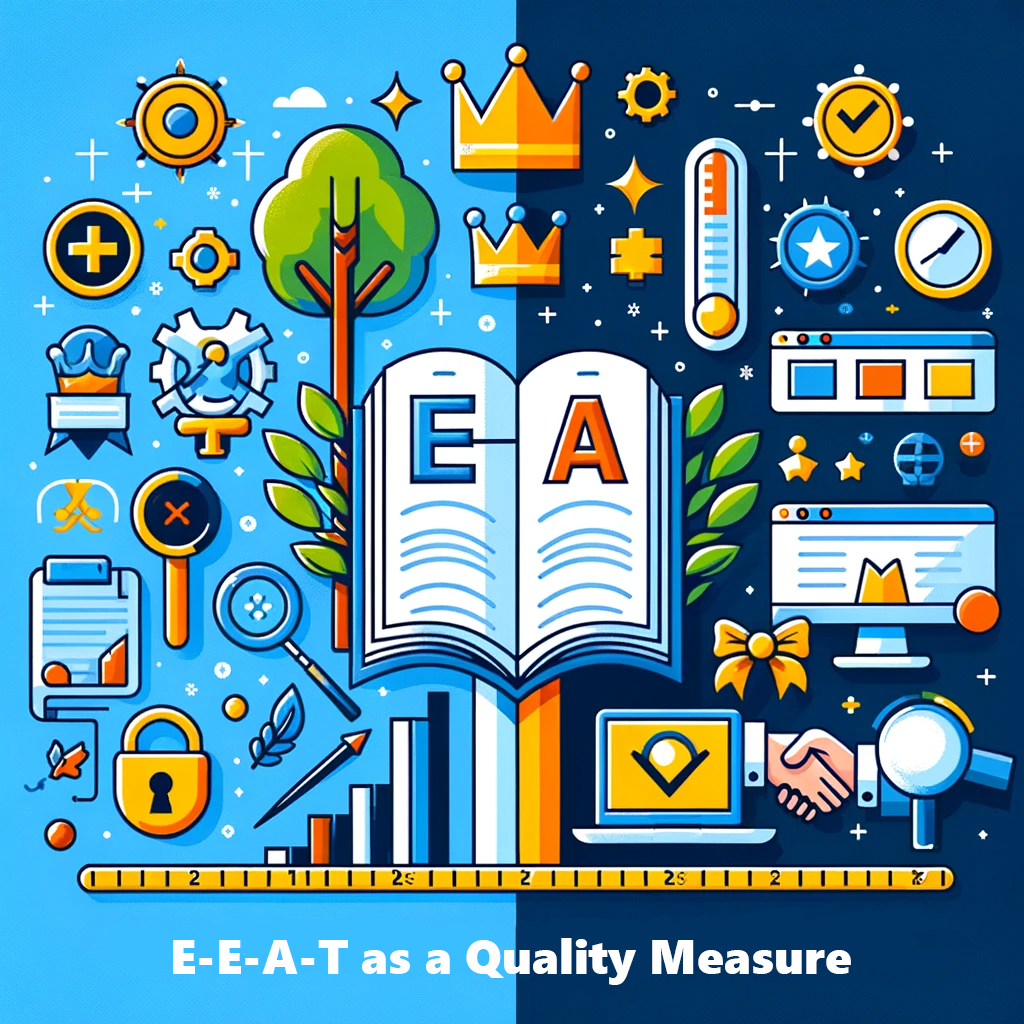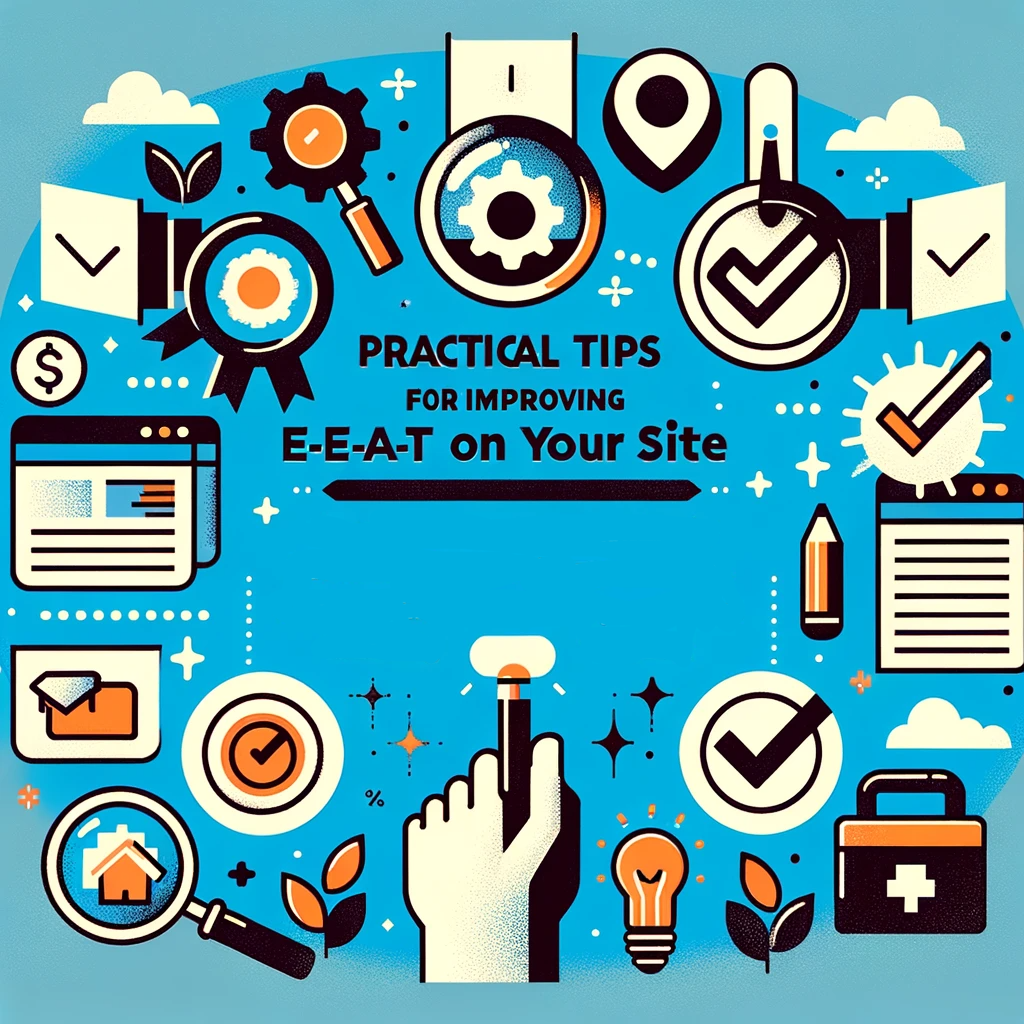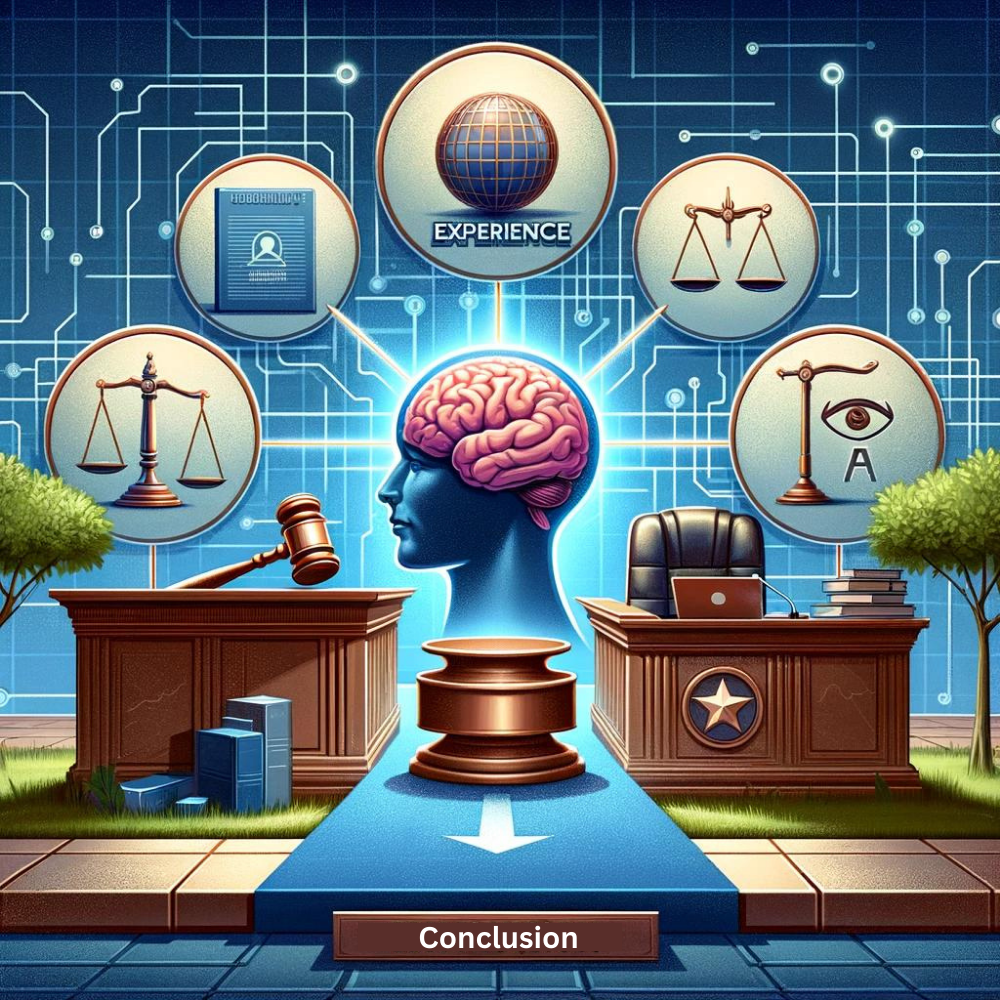What is E-E-A-T and What You Need to Know

In the ever-evolving world of SEO, Google’s introduction of the E-E-A-T framework marks a significant shift in how we understand and optimize content for search engines. It’s crucial to grasp the essence of E-E-A-T – Experience, Expertise, Authoritativeness, and Trustworthiness. These factors are not direct ranking signals in the algorithmic sense but serve as critical guides for assessing content quality and relevance.
E-E-A-T emphasizes the importance of creating content by individuals who have authoritative knowledge and trustworthiness in their field and possess firsthand experience in their subject matter. This approach seeks to ensure that users receive the most accurate, reliable, and valuable information, especially in critical areas like health, finance, and safety. Understanding and implementing E-E-A-T principles is essential for SEO practitioners aiming to align their strategies with Google’s focus on delivering high-quality and user-centric content.
I also wrote on the importance of this concept in my Local SEO for Toronto guide here.
The Evolution of E-E-A-T

For Experience, Expertise, Authoritativeness, and Trustworthiness, E-E-A-T is a refinement of Google’s approach to assessing online content. This evolution from the original E-A-T concept, introduced in 2014, marks a pivotal moment in search engine optimization.
The original E-A-T framework focused on the content creator’s expertise, the creator’s Authoritativeness and the content itself, and the Trustworthiness of both the content and its source. It served as a guideline for Quality Raters to evaluate content, particularly in sensitive topics like healthcare or finance, where accuracy and reliability are paramount.
In late 2022, Google added an extra ‘E’ for experience to this model, creating E-E-A-T. This new addition emphasizes the value of firsthand experience and personal involvement in the topic. It reflects a more profound understanding that people often seek insights from those with direct, practical experience with the subjects they’re reading about.
For instance, a product review gains more credibility if the author has actually used the product. Similarly, advice on complex topics, like medical or legal issues, holds more weight when it comes from someone with direct, professional involvement.
This evolution of E-E-A-T underscores a shift towards valuing formal expertise and the authenticity and relevance of real-world experience. As SEO professionals, it’s crucial to adapt to this change, recognizing that the quality and depth of content now play a more significant role in how Google perceives and ranks web pages.
Breaking Down the E-E-A-T Acronym

Understanding each component of E-E-A-T is essential for optimizing content in a way that aligns with Google’s focus on quality and user-centric information.
Experience
The first ‘E’ in E-E-A-T stands for experience. This emphasizes the importance of real-world, practical experience with the discussed topic. Content creators with firsthand experience can provide insights and perspectives that are more relatable and valuable to users. For example, a travel blog written by someone who has actually visited the destinations offers more authentic insights than one based on second-hand information.
Expertise
The second ‘E’ stands for expertise, which refers to the depth of knowledge and skill in a particular area. Expertise can come from formal education and training or from years of experience and practice. Google values content experts create, especially in fields that impact people’s lives significantly, like health, finance, and legal matters. Demonstrating this expertise through qualifications, certifications, or a proven track record is vital.
Authoritativeness
The ‘A’ in E-E-A-T is for Authoritativeness. This concerns the reputation and credibility of the content creator and the website. Authoritativeness is often gauged by factors like recognition from other authoritative sources, backlinks from reputable sites, and citations in respected publications. It’s about being a recognized authority in your field.
Trustworthiness
The final ‘T’ stands for trustworthiness. This aspect focuses on the reliability and honesty of the content, the content creator, and the website. Dependability is crucial, especially for websites that handle sensitive information like personal data and financial transactions. Ensuring that your content is accurate, transparent, and secure is essential to building and maintaining trust with your audience.
E-E-A-T as a Quality Measure, Not a Ranking Factor

Understanding the role of E-E-A-T in Google’s algorithm is crucial for SEO. It’s important to clarify that E-E-A-T is not a direct ranking factor. Instead, it serves as a set of guidelines for assessing the quality and relevance of content, which can indirectly influence a website’s search performance.
Quality Over Direct Impact
E-E-A-T should be viewed as a compass guiding content creation toward quality and reliability rather than a ranking signal checklist. Google’s algorithms are complex and multifaceted, and while E-E-A-T aligns with the goals of providing valuable and trustworthy content, it only partially translates into rankings.
Indirect Influence on SEO
While not a direct ranking factor, E-E-A-T significantly impacts the overall perception of a website. High-quality content that aligns with E-E-A-T principles may earn more backlinks, generate better user engagement, and gain credibility—all vital components contributing to a website’s SEO performance.
Adapting to Algorithm Updates
Google frequently updates its algorithm, often aiming to improve the quality of search results. Sites that focus on E-E-A-T are better positioned to navigate these changes successfully. By consistently providing content that demonstrates experience, expertise, authority, and trustworthiness, websites can build resilience against algorithmic shifts.
A Holistic SEO Approach with E-E-A-T
Integrating E-E-A-T into an SEO strategy means adopting a holistic approach. This involves optimizing for keywords and backlinks and ensuring that the content is genuinely useful, accurate, and created by knowledgeable sources. This approach can improve user experience, potentially increasing dwell time, reducing bounce rates, and enhancing overall engagement.
E-E-A-T in Different Niches

The significance of E-E-A-T varies across different niches, especially regarding YMYL (Your Money Your Life) topics. In these niches, the accuracy and credibility of information are not just important for SEO but also for the well-being of the users.
YMYL Niches – A Higher Standard
E-E-A-T is more critical in the health, finance, law, and safety. These are areas where misinformation can have serious, real-life consequences. Websites in these niches must demonstrate high expertise, backed by credentials where applicable, and provide content that users can trust.
Non-YMYL Content – Flexibility in Expertise
The bar for expertise may be lower for less critical topics, such as lifestyle, hobbies, or general interest areas. Practical experience or a passionate involvement in the matter can suffice in these areas. Personal blogs, hobbyist sites, and general interest platforms can still rank well by showcasing genuine interest and knowledge in their respective fields.
Importance of Trust and Authority Across All Niches
Regardless of the niche, Trustworthiness and Authoritativeness are universally important. Websites should build trust through transparent practices, accurate information, and content that resonates with their audience. Authority can be established through quality content, attracting backlinks, and the recognition of other reputable sources.
Adapting E-E-A-T for Different Audiences
Tailoring your approach to E-E-A-T based on your audience and niche is vital. Understand what your audience values – be it formal expertise for technical topics or personal experience for lifestyle content – and shape your content accordingly.
Practical Tips for Improving E-E-A-T on Your Site

Improving your site’s E-E-A-T is critical to creating content that resonates with users and search engines. Here are some practical tips to enhance these elements:
Showcase Real Experience
Share personal stories or case studies that demonstrate firsthand knowledge.
Include images, videos, or other evidence that proves your direct experience with the topic.
Highlight Your Expertise
Clearly display qualifications, certifications, or relevant experience of content creators.
For topics that don’t require formal qualifications, show practical knowledge through detailed how-to guides, tutorials, or insightful commentary.
Build Authoritativeness
Earn backlinks from reputable sites within your niche to establish authority.
Engage in community discussions, webinars, or guest blogging to enhance your profile as a knowledgeable source in your field.
Ensure Trustworthiness
Be transparent about your content’s sources, and avoid misleading headlines.
Maintain an up-to-date website with accurate, reliable, and current information.
Implement security measures like SSL certificates, especially for e-commerce sites.
Consistent Content Updates
Regularly update your content to keep it relevant and accurate.
Review and revise older content to align with current information and trends.
Engage with User Feedback
Encourage and respond to user reviews and comments. This interaction demonstrates that you value user input and are committed to improving their experience.
Focus on User Intent
Create content that directly addresses the queries and needs of your audience.
Use clear, jargon-free language that is accessible to your target readers.
By incorporating these strategies, you can significantly improve the E-E-A-T of your website. Remember, it’s not just about ticking boxes for SEO; it’s about providing genuine value to your audience.
Conclusion

In the dynamic landscape of SEO, understanding and implementing Google’s E-E-A-T framework is crucial for crafting quality content that resonates with users and search engines. E-E-A-T — Experience, Expertise, Authoritativeness, and Trustworthiness — is about more than just adhering to guidelines; it’s about building a trustworthy, authoritative presence online that genuinely serves your audience.
The Core of E-E-A-T
The heart of E-E-A-T lies in creating content that’s informative, reliable, and rooted in actual experience and expertise. This approach fosters trust and credibility, which are essential for long-term digital success.
Beyond Rankings
While E-E-A-T is not a direct ranking factor, its principles greatly influence how content is perceived and valued online. Sites prioritizing these aspects will likely see sustainable growth and resilience against algorithmic changes.
Adaptation Across Niches
Whether operating in YMYL niches or more general fields, tailoring your E-E-A-T strategy to fit your specific audience and subject matter is critical. This means understanding what your users value and delivering it through high-quality, authentic content.
A Continuous Journey
Improving E-E-A-T is an ongoing process. It involves regular content updates, engaging with user feedback, and staying abreast of evolving SEO best practices. Keeping your content aligned with E-E-A-T principles ensures that it remains relevant, helpful, and trustworthy.
Remember, at the core of E-E-A-T is enhancing the user experience and providing value. By focusing on these elements, you align with Google’s guidelines and contribute positively to the online ecosystem, building a more substantial, authoritative presence in your field.
Check out my article on Local SEO here to learn why it’s essential for businesses to optimize it.

